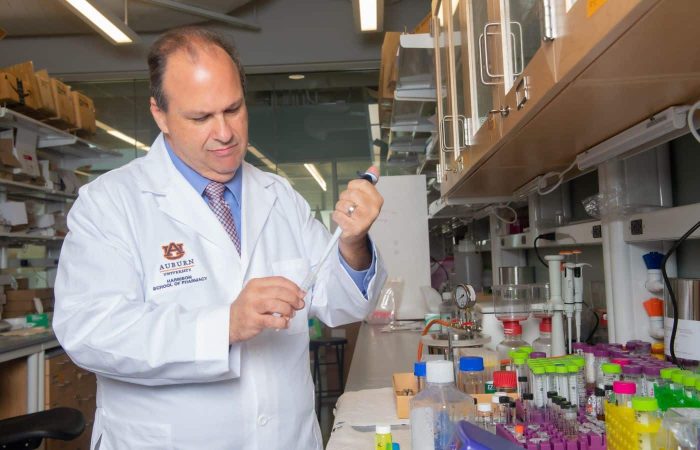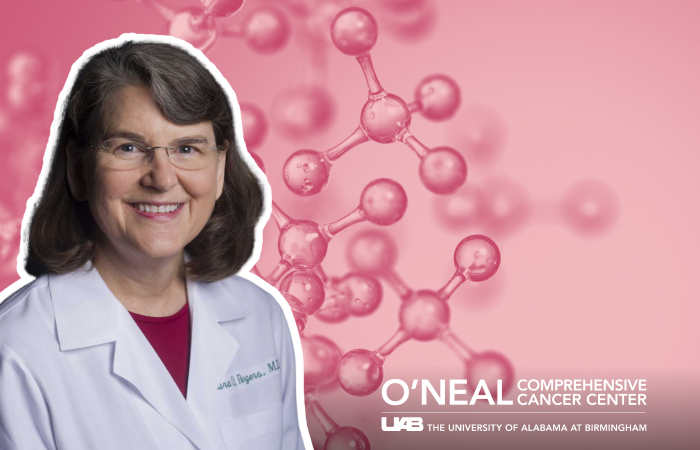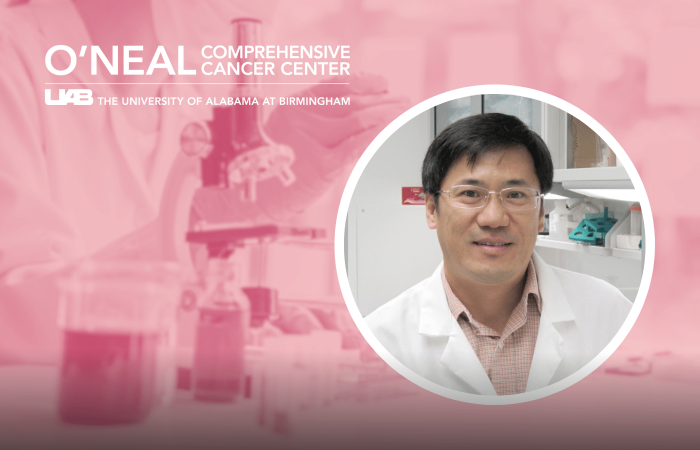Dr. Laura Rogers, Professor in the Division of Preventive Medicine, Department of Medicine at the University of Alabama…

Piazza Leads Auburn’s Innovative Cancer Research, Including BCRFA-funded Study to Test Powerful Weapon Against Triple-Negative Breast Cancer
Recently highlighted by Auburn University’s newsroom, scientist Gary Piazza’s groundbreaking cancer research is putting a new experimental compound to the test against the most aggressive forms of cancer, including triple-negative breast cancer (TNBC).
Piazza is doing something most academic scientists only dream of: advancing a new medicine.
From Auburn’s Harrison School of Pharmacy:
Despite the odds against success, Dr. Gary Piazza and his research team in the Harrison College of Pharmacy discovered a highly potent and selective anticancer drug and are collaborating with investigators at the University of Alabama at Birmingham’s O’Neal Comprehensive Cancer Center to advance a new drug candidate to clinical trials for patients with the most fatal of cancers.
Piazza joined the Harrison College of Pharmacy, or HCOP, in 2021 as W.W. Walker Professor and head of the Department of Drug Discovery and Development. A highly-respected cancer investigator, Piazza came to Auburn as a UAB graduate with over 35 years of research experience, including 10 years as a professor at the University of South Alabama Mitchell Cancer Institute in Mobile and 10 years as a principal scientist with Southern Research in Birmingham.
Piazza also brought with him to Auburn multiple actively funded research projects, including three R01 projects from the National Institutes of Health National Cancer Institute directed at colorectal and lung cancer and a project from the Breast Cancer Research Foundation of Alabama along with several million dollars in funding.

His BCRFA-funded breast cancer study focuses on determining the effectiveness of an experimental anticancer compound called ADT-030 in treating TNBC by studying mice that have metastases (spreading of cancer cells to other parts of the body).
ADT-030 works in a unique way by blocking the activity of an enzyme called phosphodiesterase 10A, which is responsible for driving the production of certain proteins that are important for the growth and survival of cancer cells, such as MYC. By inhibiting this enzyme, ADT-030 aims to slow down or stop the growth of cancer cells.
In addition to studying the effectiveness of ADT-030, the research teams are also investigating if this compound can activate the body’s natural defense mechanisms against tumors, known as antitumor immunity. They will explore if ADT-030 can make commonly used cancer treatments like chemotherapy or immunotherapy work better.
The real-world implications of Dr. Piazza’s study could be significant for the treatment of triple-negative breast cancer. If the experimental compound, ADT-030, proves to be effective in inhibiting the growth and survival of cancer cells, it could potentially become a new treatment option for patients with this aggressive form of breast cancer. This could provide hope and improved outcomes for individuals who currently have limited treatment options.



